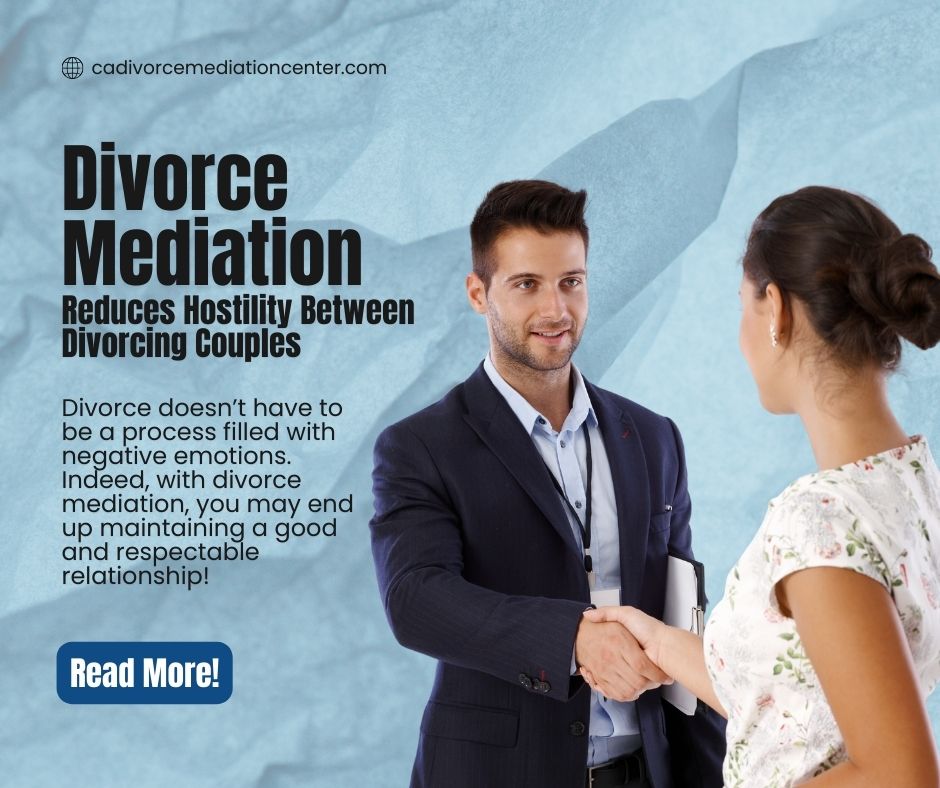Los Angeles, with its sprawling urban tapestry, is a city renowned for its diversity. Its residents hail from all corners of the globe, bringing with them unique cultures, traditions, and lifestyles. In this rich tapestry, one can find people from all walks of life, united by the pursuit of their dreams in the city of angels. However, with diverse backgrounds and complex lives, come diverse challenges, including the intricacies of divorce. In this vibrant metropolis, divorces can often be as multifaceted and intricate as the city itself.
The Emotional Landscape of Divorce
Emotions often run high during divorce. Misunderstandings, disappointments, or simply diverging life paths can turn separations into emotionally charged battlegrounds. Couples facing divorce may find themselves on opposite sides, entangled in disputes that threaten to consume them. It’s a tumultuous period, marked by emotional peaks and troughs.
In such an emotionally charged environment, the traditional approach to divorce, involving litigation in a courtroom, can escalate hostilities. Courtroom battles can be adversarial, intensifying conflicts, and potentially damaging relationships further. In contrast, divorce mediation in Los Angeles has emerged as a salient tool to quell these storms of hostility. It offers a tranquil and collaborative route toward separation, prioritizing understanding and cooperation over confrontation.

A Neutral Setting for Constructive Conversations
One of the key benefits of Los Angeles divorce mediation is that it provides a neutral setting for couples to engage in constructive conversations. Unlike the adversarial nature of courtroom proceedings, mediation sessions are conducted in an environment designed to be neutral and conducive to dialogue. Mediators, trained to create a safe space for both parties, ensure that everyone involved feels heard and understood.
This neutral setting serves as a departure from the aggressive nature of a courtroom, where couples often feel compelled to adopt defensive postures. It’s the absence of this adversarial setting that makes mediation an attractive alternative. Mediators are trained to guide discussions in a positive and constructive direction. They focus on the issues at hand and encourage respectful communication, which is instrumental in preventing conversations from devolving into blame games and rehashing old wounds.
Confidentiality: A Foundation for Openness
Confidentiality is a hallmark of mediation. Couples engage in discussions knowing that what is said within the mediation room remains confidential. This confidentiality gives couples the confidence to be more open and honest about their concerns and feelings. It’s a significant departure from courtroom proceedings, which are public records, open for scrutiny.
The confidential nature of mediation provides couples with the freedom to express themselves without fear of judgment or public exposure. This transparency can often unearth underlying issues that may have contributed to the acrimony in the first place. It allows couples to address the root causes of hostility, fostering a more genuine and deep understanding between them.
Focus on Common Goals
Mediation shifts the narrative from individual desires to shared objectives. This shift is particularly important when children are involved in the divorce process. The focus of mediation is often on common goals, such as ensuring the well-being of children, creating a stable environment for them, or achieving an equitable division of assets.
This emphasis on shared objectives encourages collaboration over competition. Rather than viewing the divorce as a battleground for individual gain, couples are encouraged to come together to work towards outcomes that serve the best interests of everyone involved. It’s a departure from the adversarial approach often taken in litigation, where each party is primarily concerned with winning.
Tailored Solutions for Unique Families
Los Angeles is known for its incredible socio-cultural diversity. Families in the city come from all walks of life and have unique needs and challenges. Mediation recognizes and respects this diversity by allowing for tailored solutions.
One of the potential pitfalls of courtroom proceedings is that decisions are often based on legal precedents and established statutes, which may not always consider the unique nuances of a particular family’s situation. Mediation, on the other hand, allows couples to craft solutions that are specific to their circumstances. This can significantly reduce disagreements arising from one-size-fits-all court mandates.
Reduced Time and Financial Strain
The duration of courtroom litigation can vary widely and is influenced by factors such as the court’s schedule, the complexity of the case, and the availability of legal resources. Finalizing a divorce through litigation can often take months or even years. This extended process can be emotionally draining for all parties involved, and the associated uncertainties can exacerbate animosities.
Mediation offers a more efficient path to resolution. It’s typically a quicker process that provides a faster resolution to the issues at hand. By reducing the time required for the divorce to be finalized, mediation diminishes the uncertainty and anxiety associated with prolonged litigation. This reduction in time and the associated financial savings can significantly lower the grounds for hostility.
Empowerment and Autonomy
Feeling heard and having a say in the outcome of the divorce naturally reduces resentment. Mediation empowers both parties to have a hand in crafting the terms of their separation. This empowerment fosters a sense of ownership over the decisions made during the process, leading to mutual respect and a greater likelihood that both parties will be satisfied with the outcomes.
In a courtroom, decisions are placed in the hands of a judge, who may have limited knowledge of the specifics of the family’s situation. This transfer of decision-making authority can be a source of frustration and hostility for divorcing couples. Mediation places the control back into the hands of the individuals involved, allowing them to make decisions that align with their unique needs and circumstances.
Professional Guidance: Expert Support for Specific Issues
In Los Angeles, mediators often come equipped with a network of professionals who can provide expert guidance and support. These experts may include therapists, financial advisors, and child custody specialists, among others. Their role is to assist couples in addressing specific issues that may be sources of hostility.
For example, financial disputes can often be a significant point of contention in divorce. Mediators can connect couples with financial advisors who can help navigate complex financial matters and ensure that both parties receive fair treatment. In cases where children are involved, therapists and child custody specialists can provide guidance on child custody arrangements and help create an environment that prioritizes the well-being of the children.
Future Relationship Framing
In many divorces, especially those involving children, complete disassociation post-divorce isn’t feasible. Mediation acknowledges this reality and helps frame the future relationship between the divorcing parties. This process involves transitioning from marital partners to co-parents or acquaintances.
By establishing this framework for the future, mediation helps reduce current animosities and prevents new ones from arising. It encourages couples to see the bigger picture and recognize that they will continue to have a relationship, especially if they have children together. It’s a departure from the adversarial nature of litigation, which often fosters further hostility.
Emphasis on Healing
Divorce, regardless of the method used, is undeniably challenging and emotional. However, mediation encourages a forward-thinking approach. Instead of dwelling on past mistakes and grievances, it promotes healing and moving forward. The focus is on how to transition from the marriage to a new chapter in life.
This shift in perspective is essential for reducing lingering bitterness. Couples who have been through mediation are often better equipped to heal and find closure. They are more likely to emerge from the divorce process with a sense of understanding and acceptance, which can significantly reduce the emotional toll of the separation.
Conclusion
In conclusion, Los Angeles divorce mediation serves as a beacon in a city as multifaceted as Los Angeles. It offers a guiding light for couples navigating the complexities of separation. By emphasizing understanding, collaboration, and forward-thinking, mediation reduces hostility during the divorce process. It ensures that separations, though painful, can still be imbued with respect and understanding.
Los Angeles, with its diverse population and unique challenges, benefits greatly from the adoption of mediation as an alternative to traditional courtroom litigation. Mediation provides a neutral setting for couples to engage in constructive conversations, promotes confidentiality and openness, focuses on common goals, tailors solutions to unique circumstances, reduces time and financial strain, empowers individuals, offers professional guidance, frames future relationships, and emphasizes healing. These aspects collectively make divorce mediation an efficient and compassionate approach to separation in the city of angels.
For many Angelenos, mediation stands out as the method of choice when facing divorce. It simplifies the process, fosters understanding, and facilitates cooperation, ultimately leading to healthier post-divorce relationships.


